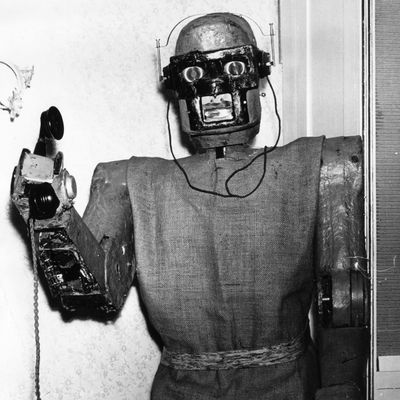
Last week, Google found itself with its most talked-about innovation in ages when it debuted Duplex, a system in which an automated voice calls a real phone number and sets up an appointment for you. To its proponents, Duplex is a system that drags small businesses that only take appointments by phone into the 21st century. To its detractors, Duplex is a deception that poses looming ethical questions about things like informed consent.
Google hasn’t exactly helped assuage such fears. The company was reportedly caught off guard by the mixed reaction to Duplex, and quickly tried to hedge, telling reporters afterward that Duplex is experimental, it only performs a very limited set of functions right now, “maybe we will have the system identify itself to the person receiving the call,” and so on.
Part of the reason for the dismayed reaction to Duplex was because the onstage demos involved, as CEO Sundar Pichai said, “the Google Assistant actually calling a real salon to schedule an appointment.” The implication was that the Duplex demo was genuine.
Enter the intrepid folks at Axios, who point out that in both demos, the call recipient never identifies the business’s name. They immediately answer with “Hello, how can I help you?” and “Hi, may I help you?” Odd! There is also a lack of ambient background noise, and on neither call does the person taking the reservation ask for a phone number or contact info. Google declined to answer Axios’s questions about what businesses Duplex called, and whether the calls had been edited for the onstage demo.
So something has been fudged, but Google won’t say what. Maybe the calls were to real businesses and were just edited, or maybe they were staged. It’s almost certainly the former, but there are other calls on Google’s blog post about Duplex that contain similar oddities and absences. One call opens with a ringtone, and then immediately someone says, “How can I help you?” It’s very obvious that something in between the ringtone and the barely intelligible “how” has been excised. In another call, you can clearly hear someone speaking in the background.
All of the mystery can be explained away. Maybe Google didn’t want to bring unwanted attention to the businesses — perfectly understandable. But it also could be a bit more complicated. Maybe Google tested its software on unwitting call recipients, who didn’t know they were talking to an automated program or being recorded. Saying so publicly opens the company up to a number of legal and ethical concerns. I’m being a little tinfoil hat–ish, but Google’s inability to be forward about these things when reporters ask, and its apparent inability to even anticipate such questions, isn’t doing the company any favors in building trust with its users.





























